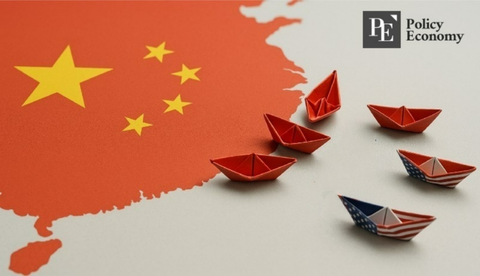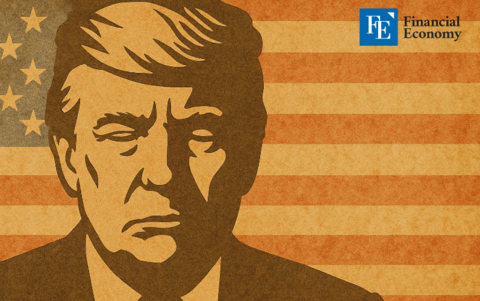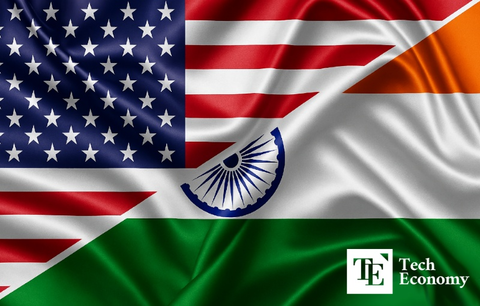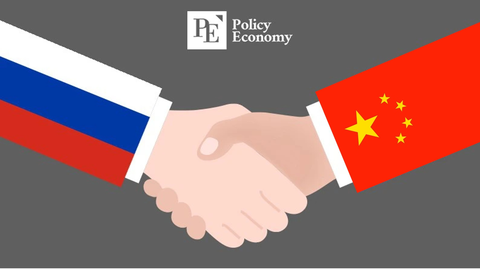Citizens Only: Trump’s Executive Order Sparks New Voting Rights Showdown
Input
Changed
A Campaign Promise Becomes Federal Policy Voting Rights Advocates Sound the Alarm Looming Legal Battles and a High-Stakes Future
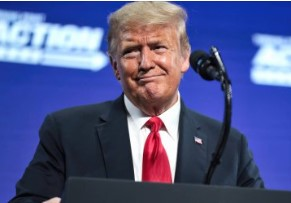
A Campaign Promise Becomes Federal Policy
In a move that has shocked few but will certainly have long-lasting implications, former President Donald Trump has signed an executive order mandating proof of U.S. citizenship for individuals to vote in U.S. elections. This decision, while seemingly logical to some, has ignited a firestorm of debate surrounding its necessity, impact on voter access, and its potential to shape the future of American democracy. To be honest, many were surprised that such a requirement was not already part of the law, as ensuring the integrity of elections is a priority for most. However, the new measure is set to drastically alter the way voting rights are approached in the U.S.
Trump’s executive order, titled Preserving and Protecting the Integrity of American Elections, directly addresses his longstanding concerns about the legitimacy of U.S. elections. The former president has made no secret of his belief that the 2020 election was riddled with irregularities and should have been handled differently. For him, proof of citizenship in order to vote is seen as a necessary step to safeguard elections and ensure that only legal U.S. citizens are participating in the electoral process.
As a vocal proponent of election reforms, Trump’s position on election integrity has been a central theme throughout his political career. He has consistently argued that the election process needs to be reformed to eliminate potential fraud, and this executive order appears to be his answer to the ongoing concerns about the transparency of U.S. elections. The announcement of this measure, which mandates that individuals must present proof of their citizenship before casting their vote, is likely to be one of the signature actions of his post-presidential era.
Trump’s stance on election integrity is rooted in his broader worldview about protecting American values. For Trump, the integrity of the electoral system is essential not only to democracy itself but also to the broader principle that American citizens should be the sole participants in the electoral process. The issue of voter identification, especially regarding citizenship, has been a recurring debate in American politics, and Trump’s executive order only intensifies this conversation. While the order aims to eliminate potential fraud, it raises critical questions about accessibility and fairness in the electoral system.
Trump’s executive order is also the fulfillment of a central promise he made during his 2024 campaign for re-election. From the beginning of his campaign, Trump made it clear that one of his top priorities was to reform the American election system. As he took the stage to rally his supporters, Trump repeated his belief that the 2020 election had been fraudulent, claiming that widespread voter fraud had tainted the results. For many of his followers, the issue of election integrity became a key motivating factor, leading them to demand that steps be taken to ensure only legal voters could cast ballots in future elections.
The signing of the order calling for proof of citizenship to vote aligns perfectly with Trump’s platform and the promises he made to his base during the 2024 election. His supporters see this executive action as a long-awaited step in the right direction, one that addresses their concerns about the legitimacy of past elections and promises to prevent any future fraud. By ensuring that only U.S. citizens can vote, Trump believes he is taking necessary steps to restore faith in the electoral system and secure American democracy.
Despite this, the order will likely not be received well by everyone. Trump’s unwavering rhetoric surrounding the legitimacy of the 2020 election has left a bitter divide in the country, with a significant portion of the population viewing his claims as unfounded. Nonetheless, for Trump and his supporters, this is one more action in his quest to prove that the 2020 election was not legitimate and that further action is required to ensure that only U.S. citizens participate in elections.
While Trump’s executive order may resonate with his supporters, it has also sparked intense opposition, particularly from the Democratic Party and voting rights advocates. Critics of the order argue that requiring proof of citizenship to vote is a thinly veiled effort to suppress voter turnout, especially among marginalized communities. For many Democrats, the concern is that such a measure will disproportionately impact minority voters, lower-income citizens, and other groups who may not have immediate access to the documents required to prove their citizenship.
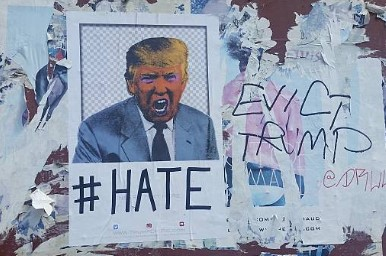
Voting Rights Advocates Sound the Alarm
Several Democratic leaders have already voiced their opposition to Trump’s order, accusing it of being an anti-voting measure designed to disenfranchise those who may struggle to provide the necessary documentation. Organizations such as Democracy Docket have been quick to point out that, while the idea of preventing non-citizens from voting might seem reasonable on the surface, the practical effect of such a policy could lead to unnecessary barriers for eligible voters. These critics argue that rather than focusing on potential fraud, the government should be looking at ways to make voting more accessible, especially for marginalized communities who are already disenfranchised.
The concern is that the requirement for proof of citizenship could create a confusing and burdensome process for many potential voters. Some may face challenges in obtaining the necessary documentation, and others might not even be aware of the new requirements until it’s too late to take action. Critics argue that such measures may have a chilling effect on voter participation and could lead to disenfranchisement on a large scale. This is especially problematic when considering that historically, voter suppression efforts have been used to disproportionately impact people of color and low-income communities.
Moreover, some fear that this move could set a dangerous precedent for further restrictions on voting rights. If one measure like this is allowed to pass, they worry, it could pave the way for even more restrictive policies in the future. The debate over election integrity is deeply polarized, and this new executive order only further entrenches the divide between those who believe in stricter election regulations and those who view such measures as obstacles to a free and fair vote.
It’s likely that Trump’s executive order will face significant legal challenges as soon as it is implemented. The United States has a long history of contentious battles over voting rights, and the introduction of new restrictions is sure to spark courtroom drama. Civil rights groups, along with many Democratic lawmakers, have already signaled their intent to challenge the executive order in court, arguing that it infringes upon citizens’ constitutional rights to vote.
The outcome of these legal battles will determine the future of this measure and could set important precedents for voting rights and election integrity in the U.S. It’s possible that the legal system will become the ultimate arbiter of whether Trump’s executive order is constitutional, and the case could eventually make its way to the Supreme Court. The decision could have far-reaching consequences, affecting not just the way U.S. elections are conducted but also how the country views its own democratic processes. As Trump pushes forward with his agenda, the nation will watch closely to see how this executive order plays out. Will it be upheld by the courts, or will it be struck down as an unconstitutional infringement on voting rights? Regardless of the outcome, one thing is clear: the battle over election integrity will continue to be a central issue in American politics for the foreseeable future.
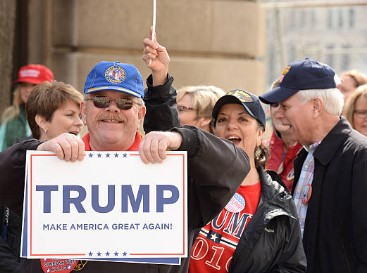
Looming Legal Battles and a High-Stakes Future
Trump’s executive order mandating proof of citizenship for voting represents a critical juncture in the ongoing debate over election integrity and voter rights in the United States. While some see it as a necessary step to protect the electoral process from fraud, others view it as a thinly veiled attempt to suppress voter turnout, particularly among marginalized groups. The implications of this order will be felt for years to come, especially as legal challenges to its implementation unfold.
At the heart of the matter is a fundamental question about what constitutes fair and equitable access to the voting booth. As the debate intensifies, both sides will continue to argue their positions, with Trump and his supporters pushing for tighter restrictions to ensure election integrity and critics fighting to protect the rights of all eligible voters to have their voices heard. The outcome of this debate will shape the future of American democracy, and it remains to be seen which side will ultimately prevail.


